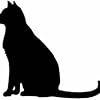Birgit Benedikt
asked:
I have two questions I can't answer from the book: Alcohol: Total abstinence is what Walker clearly advises regarding alcohol and sleep. He is mentioning a glass of wine and an aperitif in the evening as being a problem. The 12 tips mention "heavy use", though. So: is there a dose that's still ok? Caffeine: If I have no problems falling asleep whatsoever -- is caffeine still causing problems in sleep?
To answer questions about
Why We Sleep: Unlocking the Power of Sleep and Dreams,
please sign up.
James
Peter Attia recently interviewed Matthew Walker for his podcast. The interview is split across three episodes and totals almost six hours. The pair discuss many topics, including the effects of alcohol and caffeine on sleep. I've transcribed some excerpts below that kind of respond to your questions.
Alcohol
Peter Attia: "For me, it appears that a single drink four to five hours before bed doesn't appear to have a difference that I can discern. Anything beyond that—meaning one drink closer to bed or two drinks even six hours before bed—my sleep is shot. My resting heart rate will be six to eight beats higher, my heart rate variability is compressed by 20 per cent, my respiratory rate is higher by probably two breaths per minute—one to two breaths per minute—my temperature is up by 0.3 to 0.6 degrees Fahrenheit; it is a kick in the groin."
Matthew Walker: "On every one of those levels, you know, that's exactly what we see in the scientific evidence. You need heart rate to drop. Heart rate variability is usually far higher with sleep, especially good sleep, the same is true for the next morning if you get good sleep. Temperature and respiration are critical as well. We know that you need to drop your core body temperature by about two to three degrees Fahrenheit to initiate sleep, and that's the reason why you will always find it easier to fall asleep in a room that's too cold than too hot, because the cold is at least taking you in the right temperature direction for good sleep. Yet alcohol, with this thermogenic profile, starts to increase your core body temperature, which is the exact opposite of what has to happen for good sleep. So you're going to get more fragmented sleep, you get more awakenings, you disrupt REM sleep. [Peter's anecdote] fits exactly the profile of the scientific data. [...]I can tell you here as a sleep scientist that what you're describing is exactly what you see in the scientific literature."
Caffeine
Matthew Walker: "If you give someone a standard 200 mg dose of caffeine in the evening and then you measure their sleep architecture, what you see is about a 20 per cent reduction in deep sleep as a consequence of that caffeine being in the[ir] system. To put that in context, to drop your deep sleep by about 20 per cent, I'd have to artificially age you by about 20 to 30 years to get that type of reduction of a loss [sic] of deep sleep."
Alcohol
Peter Attia: "For me, it appears that a single drink four to five hours before bed doesn't appear to have a difference that I can discern. Anything beyond that—meaning one drink closer to bed or two drinks even six hours before bed—my sleep is shot. My resting heart rate will be six to eight beats higher, my heart rate variability is compressed by 20 per cent, my respiratory rate is higher by probably two breaths per minute—one to two breaths per minute—my temperature is up by 0.3 to 0.6 degrees Fahrenheit; it is a kick in the groin."
Matthew Walker: "On every one of those levels, you know, that's exactly what we see in the scientific evidence. You need heart rate to drop. Heart rate variability is usually far higher with sleep, especially good sleep, the same is true for the next morning if you get good sleep. Temperature and respiration are critical as well. We know that you need to drop your core body temperature by about two to three degrees Fahrenheit to initiate sleep, and that's the reason why you will always find it easier to fall asleep in a room that's too cold than too hot, because the cold is at least taking you in the right temperature direction for good sleep. Yet alcohol, with this thermogenic profile, starts to increase your core body temperature, which is the exact opposite of what has to happen for good sleep. So you're going to get more fragmented sleep, you get more awakenings, you disrupt REM sleep. [Peter's anecdote] fits exactly the profile of the scientific data. [...]I can tell you here as a sleep scientist that what you're describing is exactly what you see in the scientific literature."
Caffeine
Matthew Walker: "If you give someone a standard 200 mg dose of caffeine in the evening and then you measure their sleep architecture, what you see is about a 20 per cent reduction in deep sleep as a consequence of that caffeine being in the[ir] system. To put that in context, to drop your deep sleep by about 20 per cent, I'd have to artificially age you by about 20 to 30 years to get that type of reduction of a loss [sic] of deep sleep."
TigressLea
Any amount of alcohol will negatively affect your sleep. The more you drink the more disturbed sleep you'll have. I guess he said "heavy use" because he's pragmatic and knows people are likely to want to drink anyway.
Caffeine affects the quality of sleep as well as, for most people, makes it more difficult to fall asleep. So even if you can fall asleep after a cup of coffee the quality of the sleep you'll get is affected negatively.
That's the level of detail I remember, I'm sure if you search for it in the book there's explanation which affects which type of sleep. I for one stopped drinking both at least 6 hours before the time I plan to fall asleep.
Hope this helps!
Caffeine affects the quality of sleep as well as, for most people, makes it more difficult to fall asleep. So even if you can fall asleep after a cup of coffee the quality of the sleep you'll get is affected negatively.
That's the level of detail I remember, I'm sure if you search for it in the book there's explanation which affects which type of sleep. I for one stopped drinking both at least 6 hours before the time I plan to fall asleep.
Hope this helps!
About Goodreads Q&A
Ask and answer questions about books!
You can pose questions to the Goodreads community with Reader Q&A, or ask your favorite author a question with Ask the Author.
See Featured Authors Answering Questions
Learn more




